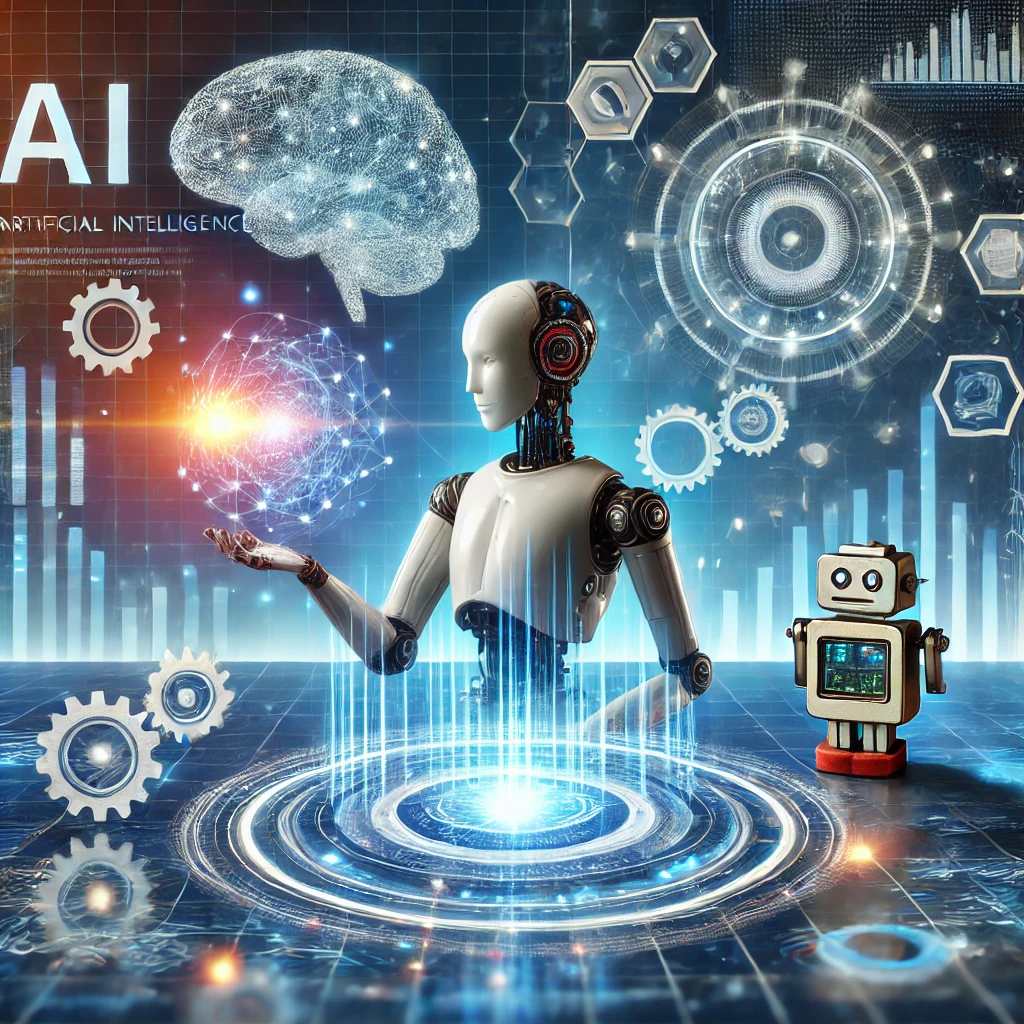The Transformative Advantages of Artificial Intelligence
Artificial Intelligence (AI) is revolutionizing the way we live, work, and interact. From automating mundane tasks to enabling groundbreaking discoveries, AI offers a myriad of advantages that enhance efficiency, innovation, and accessibility across diverse sectors. Here, we explore the transformative benefits of AI and its potential to shape a better future.
1. Enhanced Efficiency and Automation
AI excels in automating repetitive and time-consuming tasks, allowing businesses and individuals to focus on strategic, creative, and human-centric activities. In industries like manufacturing, AI-driven robots streamline assembly lines, ensuring precision and speed. In offices, AI-powered tools handle data entry, scheduling, and even customer service, reducing errors and freeing up valuable time.
2. Improved Decision-Making
AI systems, powered by machine learning and data analytics, can process vast amounts of information faster and more accurately than humans. They identify patterns, predict trends, and provide actionable insights that aid in making informed decisions. For example, in finance, AI helps detect fraudulent transactions, while in healthcare, it assists doctors in diagnosing diseases with greater accuracy.
3. Accessibility and Personalization
AI enhances accessibility by creating tools that cater to people with disabilities, such as voice-to-text transcription, text-to-speech readers, and advanced prosthetics. Simultaneously, AI delivers personalized experiences in areas like entertainment, e-commerce, and education. Recommendation algorithms on platforms like Netflix or Amazon tailor content to individual preferences, enriching user satisfaction.
4. Accelerated Innovation
AI accelerates research and development by analyzing complex data sets and generating hypotheses more quickly than traditional methods. In pharmaceuticals, AI has been instrumental in drug discovery, as seen during the rapid development of COVID-19 vaccines. In renewable energy, AI optimizes resource utilization and forecasts demand, promoting sustainable practices.
5. Enhanced Safety and Security
AI contributes significantly to improving safety and security across various domains. In transportation, self-driving cars use AI to minimize accidents and improve traffic flow. In cybersecurity, AI-powered systems detect and counteract cyber threats in real-time, safeguarding sensitive information.
6. Economic Growth and Job Creation
While concerns about job displacement exist, AI also creates opportunities in emerging fields like data science, AI ethics, and robotics engineering. By driving productivity and fostering innovation, AI contributes to economic growth and opens new avenues for employment.
7. Better Environmental Management
AI aids in tackling pressing environmental challenges. Through advanced sensors and data analysis, AI monitors climate change, predicts natural disasters, and optimizes energy consumption. Smart grids and AI-driven agricultural practices promote sustainable resource management, ensuring a healthier planet for future generations.
8. Democratization of Knowledge
AI-powered platforms like language translation tools and online learning systems make education and knowledge accessible to a global audience. These tools break down language barriers, enable remote learning, and ensure that individuals in underprivileged areas can access quality education.
Conclusion
The advantages of artificial intelligence are vast and diverse, touching every aspect of modern life. As we continue to integrate AI into our daily routines and professional environments, it is crucial to address ethical considerations and potential risks to ensure that AI benefits society as a whole. With thoughtful implementation and governance, AI has the potential to be a force for good, fostering innovation, inclusivity, and progress in unprecedented ways.




















